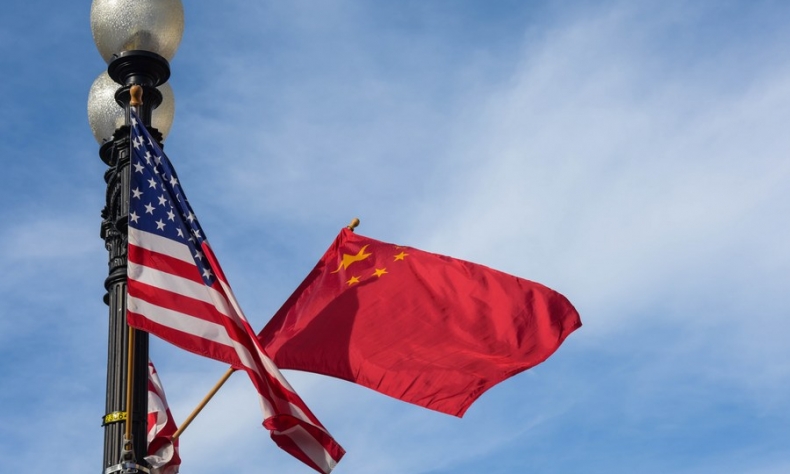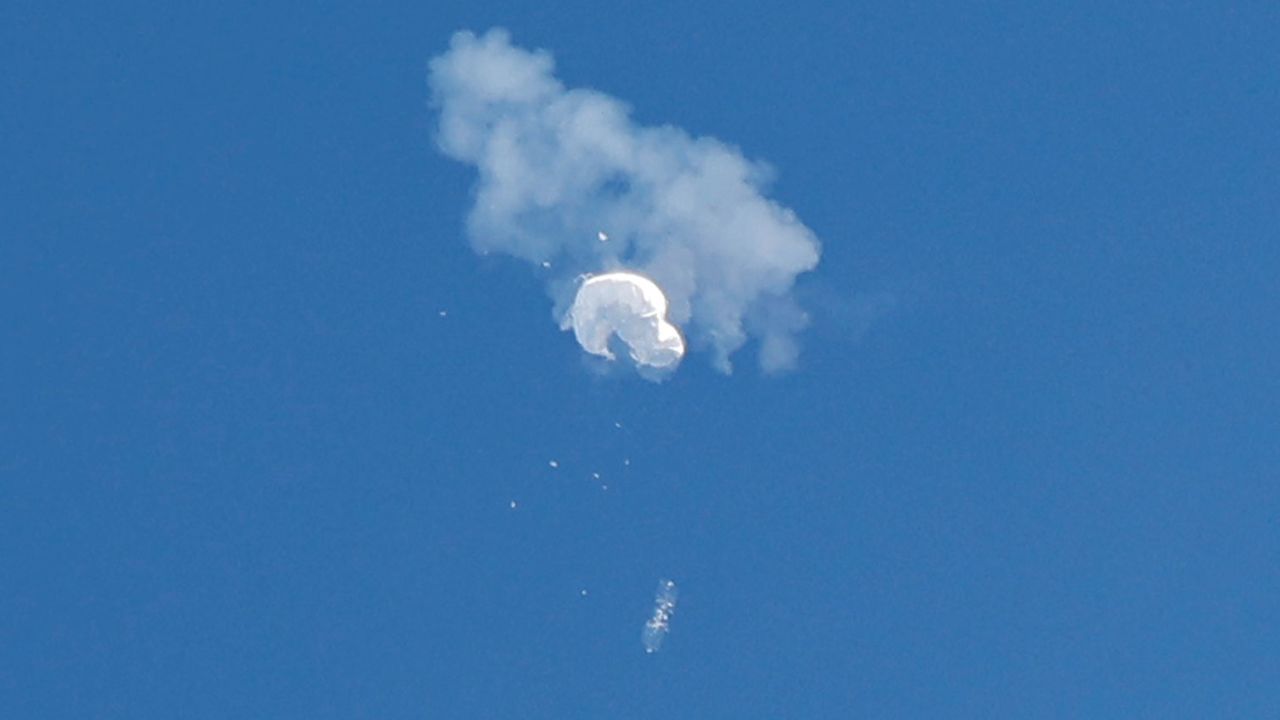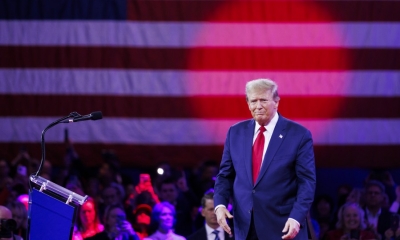The Postponement of Blinken’s Visit and U.S.-China Relations

Washington’s Cold War mindset and bloc politics strategy is a dead end and negatively affects relations with China not to mention relations with the rest of the world.
The U.S.-China relationship is undergoing another twist because of a drifting balloon.
Last week, the U.S. government announced an unmanned Chinese balloon was drifting over the continental United States. After some politicians and media hyping up the balloon as “China threat”, the U.S. military shot it down by order of President Biden.
China has expressed strong opposition and protest against the U.S. move, accusing the U.S. of overreaction and a serious violation of international practice. China said the balloon is a civilian airship for meteorological research purposes and the Chinese side regrets the unintended entry of the airship into U.S. airspace due to force majeure, while asking the U.S. to properly handle this unexpected situation.
Following the argument over the balloon, the U.S. announced the postponement of Secretary of State Blinken’s visit to China. In reply to this announcement, China’s Foreign Ministry said, “In fact, neither side has ever announced that there would be a visit.”
With the U.S.-China relations at almost rock bottom, if there was a Blinken visit, it would be unlikely to change the fundamentals. Washington’s Cold War mindset and bloc politics strategy is a dead end and negatively affects relations with China not to mention relations with the rest of the world.

So, what is there to talk about?
On the one hand, a lot. On the other hand, not much.
Key bilateral issues such as the U.S. trade war and the U.S. tech war against China will not be solved overnight. In fact, they may not be solved at all for years to come owing to Washington’s mindset and geopolitical strategy. These are core issues that certainly need to be addressed but expectations are low.
Issues such as the environment, public health, counternarcotics are good things to cooperate on but are not fundamental strategic matters at the core of the relationship. Addressing secondary and tertiary issues without regard to core issues will not solve the present U.S.-China impasse.
Washington’s anti-China mood
At every turn, Washington seems to be ratcheting up the trade and tech war against China. In recent months, the U.S. semiconductor blockade received much attention. Recent U.S. pressure on Japan and the Netherlands in particular has been brought to bear in order to restrict their exports to China in this sector.
The trade and tech war begun under the Trump administration has been carried forward by the Biden administration and augmented. In Washington, there is strong bipartisan support for anti-China policies. Thus, it is irrelevant to China policy which political party dominates the U.S. capital because the dominant factions of each are hawkish. Of course, there are some doves in Washington but they are few and far between.
The anti-China mood in the new 118th Congress (2023-2025) will become more intense as Republicans took the House. The dominant faction of the Republican Party has chosen to emphasize anti-China positions as “good politics.” The Republican Speaker of the House, Kevin McCarthy is promoting a heightened anti-China stance in Congress. He has created a new select committee to deal with the “China threat” notwithstanding there are standing committees on Foreign Affairs, Intelligence, and Armed Services that have jurisdiction over such matters.

Anti-China hysteria in Congress and in the U.S. media triggers increasing public anti-Asian racism and acts of violence against Asians. Neither political party has addressed this issue which corrodes U.S. democracy. Both parties vie with each other to be perceived as the most ant-China.
A hypocritical, and childlike, stance is taken by virtue signaling politicians against the “CCP”. This language is supposed to trigger anti-Communist emotional responses to reinforce the Cold War imagery and bloc politics. Such sloganeering not only whips up political hysteria but it also fires up anti-Asian racism which, in turn, triggers violence against Asian-Americans.
Washington’s strategic dead end
The fundamental problem in U.S. national security planning is that it ignores the international situation as it is and as it is developing. A number of factors contribute to this including hubris and short-term thinking. The bottom line is that Washington lacks the vision and the competence to formulate and effectively implement a national strategy in the long-term interest of the American people.
The world is moving into multipolarity. This is a fact and involves the transition from the bi-polar Cold War era to the U.S. “unipolar” era to a new pattern in the international system. This new pattern of multipolarity is sometimes referred to as “polycentrism” and “pluralism.”
Whatever adjective is used to describe the present international situation, there is clearly a shift in the international “correlations of forces”. This is to say that power shifts through the centuries. Empires rise and fall. New powers come into being whether small, medium, or major.
The five-hundred-year era of Western colonialism ended after World War II. President Franklin Roosevelt was committed to ending colonialism out of idealism but also with an eye to new markets for U.S. commerce. By the 1960s, colonialism had almost ended though there were a few holdouts.
In recent years, however, the U.S.-led West has engaged in a new colonialism or “neocolonialism”. The so-called “Atlantic Community” involving North America and Europe using economic tools as well as the NATO military alliance pursues policies which support neocolonialism.
Broadly speaking, this Western policy is meant to firmly entrench and impose finance capitalism. Under the “neoliberal” economic model the world’s populations and nation states are to be enslaved in this update of five centuries of Western colonialism.

Washington, however, has a problem today in that many countries around the world want independence from any new form of colonialism old or new. A glance at the voting patterns in the UN General Assembly clearly reveals this. The Western bloc with South Korea and Japan as honorary members has roughly 50 votes compared to some 140 votes of those with an independent mind.
While the trend is toward multipolarity, Washington is stuck in an obsolete mindset with obsolete policies. These are leading the U.S. into a dead end and isolation from the majority of mankind.
Biden’s aimless foreign policy
Stuck in the Cold War mindset and blind to the changing international situation, the Biden administration fails to devise a foreign policy for the U.S. to meet today’s requirements. Blinken wanders around the world to Africa, to Latin America, to Europe, to Asia attempting to whip up support for Washington’s failing policies.
Since World War II, the U.S. has lost the Korean War, the Vietnam war, the Afghan war, and the Ukraine war. Prior to the Ukraine War, as the late and highly respected General William Odom said, the biggest strategic mistake in U.S. history was to invade Iraq. Washington wasted over 5 trillion dollars on the Iraq and Afghan wars. Under Biden, it is wasting billions on its Ukraine war.
Incantations about a fictive “rules based international order” and some smoke and mirrors hawkish foreign policy is not going to pull America’s chestnuts out of the fire rescuing it from strategic folly.
A Blinken visit to China, not to mention the proposed visit of House Speaker McCarthy to Taiwan, does not seem auspicious for improved relations.
Washington must sober up, see the world as it is, and undertake a comprehensive, systematic, and integrated national strategy in the long-term U.S. interest. Peace and development should be at the heart of a new U.S. policy.
The article reflects the author’s opinions, and not necessarily the views of China Focus.
 Facebook
Facebook
 Twitter
Twitter
 Linkedin
Linkedin
 Google +
Google +







